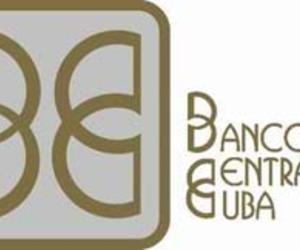WikiLeaks cables indicate Cuba wasn't laundering money
- Submitted by: lena campos
- Politics and Government
- 06 / 26 / 2012

A series of cables from diplomats at the U.S. Interests Section in Havana a few years ago indicates that at the time they found no "direct evidence" of money laundering in Cuba, but said the island has one of the world's "most secretive" banking systems.
Two of the U.S. diplomatic reports, which were made public by WikiLeaks, were replies to State Department queries sent to all U.S. embassies in 2008 and 2009 on how their host governments were handling measures on fighting money laundering and combating financing of terrorism.
Both reports were unclassified, indicating they contained no information considered sensitive by the U.S. diplomatic mission in Havana, called the U.S. Interests Section because the two nations do not have full diplomatic relations.
“The U.S. government does not have any direct evidence of money laundering or terrorist financing activities in Cuba in 2009,” one dispatch said, adding that the Cuban government did not “publicly report any significant arrests, seizures or prosecutions.”
Both cables added that Cuba has “one of the most secretive and non-transparent national banking systems in the world.”
The reports noted that “the national media in Cuba is completely controlled by the state, which permits only laudatory press coverage of itself” and that the government “does not routinely publish or publicize” anti-money laundering or counter-terrorist financing activities.
Questions about Cuba’s banking system and its anti-money laundering controls have come up this week because U.S. prosecutors on Monday charged Oscar Sánchez of Miami in a money-laundering scheme that allegedly sent $31 million in Medicare fraud money to the island. They later added that there was no proof the Cuban government was behind the scheme.
A Foreign Ministry official in Havana, responding to the allegation that Sánchez sent Medicare money to Cuba, said earlier this week that the country has strict controls to avoid money laundering and works closely with banks to detect and deter illegal transactions.
Meanwhile, a third U.S cable from Havana noted that Cuba gave permission in 2009 to serve a subpoena issued by a federal court in Miami on “three Cuban-American brothers” suspected of more than $100 million in Medicare fraud.
The cable did not identify them, but it could be referring to José, Luis and Carlos Benitez, Miami brothers who fled to Cuba to avoid their 2008 indictment on charges of filing $119 million in false Medicare claims.
The subpoena was “directed against personal property (assets), although none of the property identified is in Cuba,” the cable added, without further explanation.
The brothers “were being held in a Cuban prison on unspecified charges,” according to the cable, giving no further details.
Comments